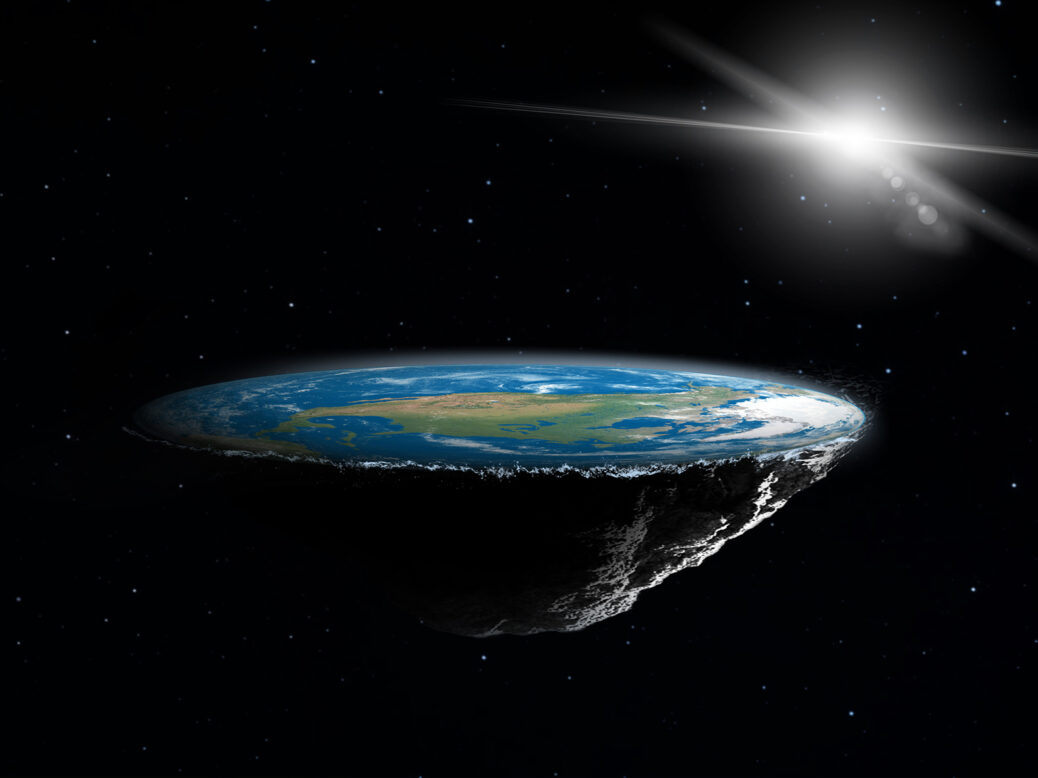
In the not-too-distant future, the question of how much airtime the BBC gives to flat-Earthers may well be moot. If the government abolishes the licence fee after 2027 and BBC News becomes just another Twitter handle floating around in the fever-swamps of social media, it will be free to air all manner of wacky and/or dangerous beliefs with the same enthusiastic abandon as anyone else.
But for now, the public – rightly – holds the BBC to a higher standard. And so recent comments by the BBC’s editorial director suggesting that the corporation should, from time to time, broadcast the voices of those who think the Earth is flat, were met with derision, even anger.
David Jordan went on to say that if more people started believing we’re all living on a pancake, that view might indeed merit more airtime. Did the man in charge of setting the BBC’s editorial policy really think objective reality was a matter of faith rather than observable fact? Of course not. Did some of those fuelling this mini-outrage also have a political, ideological or even financial agenda? That would be pure speculation.
In fairness, it isn’t necessarily obvious why the BBC ought to be giving airtime to people whose views and beliefs seem untethered from reality. But having spent the past year reporting on some of those very people, I’m more convinced than ever that we should. Indeed, the health of our democratic society may depend on it.
In November 2020, I was in Arizona covering the aftermath of the US presidential election. I met a man draped in furs and wearing horns on his head. He believed the election had been stolen by a cabal of satanic paedophiles engaged in a deep-state plot to oust Donald Trump and seize control of the republic. The guy was pretty eye-catching. TV is a visual medium and I really wanted to put him on camera. But I didn’t. What he was saying was obviously nonsense, and it seemed irresponsible to put some fringe character into a news report, even if I did challenge his outlandish beliefs. Oxygen of publicity and all that.
That turned out to be a big mistake. Two months later, on 6 January last year, I was back in London watching TV as a mob stormed the Capitol in Washington, DC. And there he was, the same guy with the horns and the furs. His name is Jacob Chansley and he had become the face of a movement that was far deeper and broader than most of us had suspected. In a poll released last May, 23 per cent of Republicans believed the US establishment was controlled by a group of Satan-worshipping paedophiles, and 15 per cent of all Americans said they thought “true American patriots” might have to resort to violence to save the country.
If we were blindsided by 6 January, it’s because not enough of us had taken Chansley seriously. Too few journalists like me had listened to what people like him had to say, and even fewer had taken the time to interrogate how and why this strange and dangerous narrative had entered the bloodstream of the US. I’ve spent the past year working on a series called The Coming Storm that tries to answer those questions. The answers are complex and nuanced. It’s tempting to think of this as a peculiarly American phenomenon. I don’t believe it is. Mass delusion may turn out to be an ever-increasing by-product of democracy in the information age. Fantasies are becoming political realities and ignoring them will not make the problem go away.
[See also: What lies behind conspiracy theories targeting Brigitte Macron]






